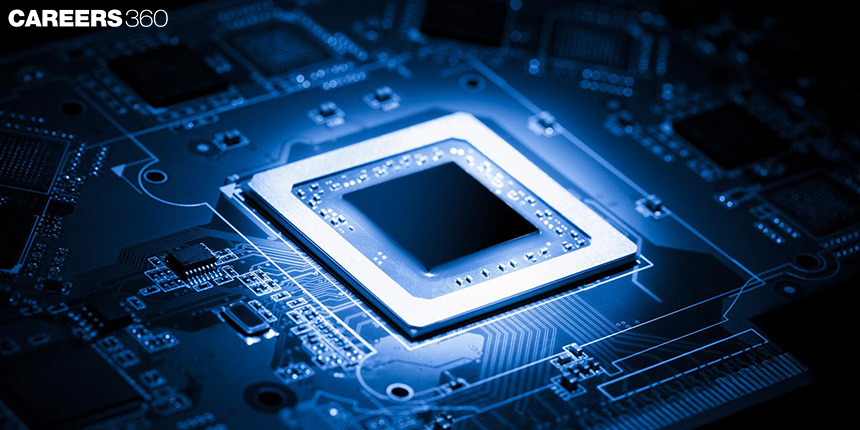Invention Of Integrated Circuits
An integrated circuit which is also known as IC is a chip or a series of transistors which are arranged on a silicon piece. Integrated circuit is an arrangement of transistors which are more durable and faster as compared to the old generation of the transistors.

Integrated circuits are an integral part of the electronic industry and used in almost all electronic gadgets such as computers, CD players, mobile phones, television, etc.
There is one chapter “semiconductor electronics: materials, devices, and simple circuits” in physics NCERT class 12. Interested students can refer to it to broaden their knowledge base but here in this article, we will discuss how we come to know about integrated circuits.
Types of Integrated Circuits
Integrated circuits are classified into two types.
Analog Integrated Circuits − Analog Integrated circuits operate over an entire range of continuous values of the signal amplitude.
Digital Integrated Circuits – Digital Integrated Circuits operate only at a few predefined levels instead of operating for an entire range of continuous values of the signal amplitude.
Also Read | What Do You Know About The Invention Of Radio Waves
History of the Integrated Circuit
The beginning of the Integrated Circuits can be traced back to the vacuum tubes, which used to be bulky and large devices. The challenge of the vacuum tubes was solved by transistors and then came the microchip. Vacuum tubes used to require warming up before starting and space required was also high. Such challenges led to research in this field and with the effort of scientists, Integrated Circuits were invented.
Invention of the IC
In 1957, Jack Kilby came up with the idea of creating a small component in the form of Integrated Circuits. After leaving the army, he went to work at Texas Instruments. Kilby demonstrated the first working of the IC in 1958 and thereafter applied for the patent. The term Integrated Circuit was also coined by Kilby. After the complete invention and testing of the Integrated circuit, it was used in common electronic devices. For his contribution in inventing the first Integrated Circuit, Jack Kilby won the nobel prize in 2000.
Development and Production
After the invention of the Integrated Circuits, It has revolutionised the electronic devices industry and integrated circuits are part of many different electronic devices these days. Invention of Integrated Circuits is considered as one of the most important inventions of the 20th Century. With the help of integrated circuits, complex electronic circuits can be designed very easily and at low price. Integrated Circuits also known as chips has a lot of advantages which are discussed below.
Also, read | What Is The Science Behind An Earthquake?
Advantages of Integrated Circuits
Integrated circuits have solved many problems of the electronic industry. Below are the important advantages:
Compact size: Most important functionality of the Integrated Circuits is that it occupies very less space due to its compact size.
Lesser Weight: Due to its lesser weight, Integrated circuits are user friendly and the devices are lightweight.
Low Power consumption: Integrated Circuits consume less power than the traditional circuits because of their small size.
Cheaper Price: Integrated circuits are available at cheaper cost than the traditional circuits as advanced technology is used in the manufacturing which uses less material and manpower.
High Operating speed: Integrated Circuits have high operating speed as it deploys advanced technology and requires less power.
The invention of integrated circuits is a landmark achievement in the history of electronics. The multiple benefits of integrated circuits have opened multiple opportunities for development in electronic gadgets and made the electronics devices user friendly in multiple aspects. The field of electronics is dynamic and ever evolving where the focus is on reducing the price and increasing the compactness of the gadgets.
Applications for Admissions are open.
As per latest syllabus. Physics formulas, equations, & laws of class 11 & 12th chapters
JEE Main Important Chemistry formulas
Get nowAs per latest syllabus. Chemistry formulas, equations, & laws of class 11 & 12th chapters
JEE Main high scoring chapters and topics
Get nowAs per latest 2024 syllabus. Study 40% syllabus and score upto 100% marks in JEE
JEE Main Important Mathematics Formulas
Get nowAs per latest syllabus. Maths formulas, equations, & theorems of class 11 & 12th chapters
